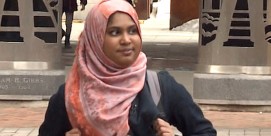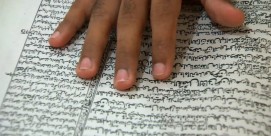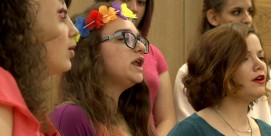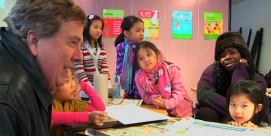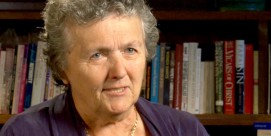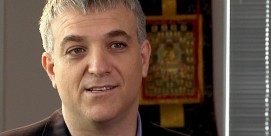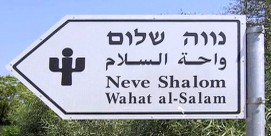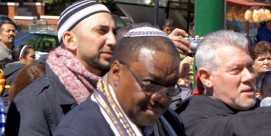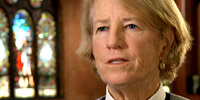Tag: Interfaith Dialogue
“A headscarf isn’t meant to hurt you; it’s what’s meant to protect you. You’re modest in the sense of God looking at you, but you’re modest to other people as well,” says Umand Weerasinghe, a young Buddhist woman in Maryland whose Muslim friend Sofia Amir loaned her a scarf to wear for Hijab Day. More
“People are going back to the basic texts, and they’re stripping away centuries of culture and tradition and looking for what they see at the heart of the religion,” says American journalist Carla Power, author of If the Oceans Were Ink: An Unlikely Friendship and a Journey to the Heart of the Quran. More
The 1965 Second Vatican Council declaration on the relation of the church to non-Christian religions transformed church doctrine about Jews and other faiths. Nostra Aetate had its roots “in the shame and realizations of Christians after the Holocaust for what has been done to Jews,” according to Rev. Dennis McManus of Georgetown University. More
“Jerusalem is a place historically if there is something different about us, let’s fight about it. That’s basically the vibe. And so we and the chorus are trying to create an alternate reality,” says conductor Micah Hendler. He founded the YMCA Jerusalem Youth Chorus, an ensemble of Israeli and Palestinian high school singers. More
A Journey Through NYC Religions, says editor and publisher Tony Carnes, “has made me more free to listen to people. And that may sound like a small thing, but it’s actually pretty big.” More
“Our purpose is to present the most humane, spiritual, moral, communal model of life for a world in chaos around us—to be an island of care and cohesion in the midst of all the movement.” More
“There is a lot of irony in the fact that the monk Wirathu and his followers are using fear in order to incite acts of violence that are precisely against the spirit of so much Buddhist teaching,” says Eyal Aviv, a professor of religious studies and international affairs at George Washington University. More
“I’d like people to know that there are a lot of people in this country who are into dialogue, education, getting to know one another, trying to, trying to live together,” says Rabbi Ron Kronish, director of the Interreligious Coordinating Council in Jerusalem. More
“Do I believe there’s a problem with some sectors of the community that are vulnerable and susceptible to violence? Absolutely. I wouldn’t deny that…The largest antidote, cure if you will, to any concern about radicalization and violence associated with it is meaningful, critical engagement.” More
Climate change “is probably the most moral issue of our time,” says the president and founder of Interfaith Power & Light, a coalition of thousands of religious people putting their faith into action through energy stewardship. More

